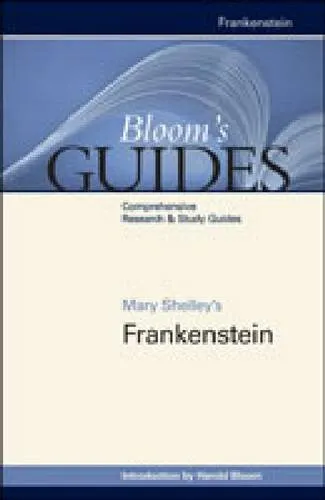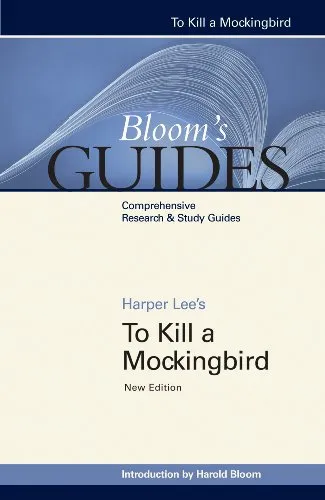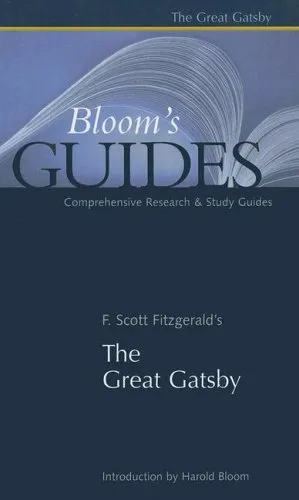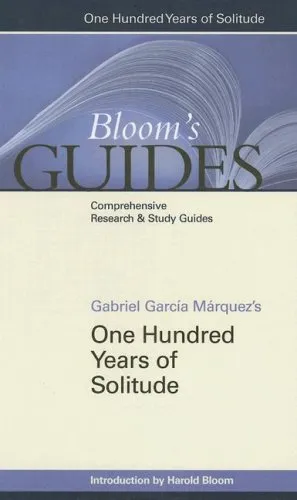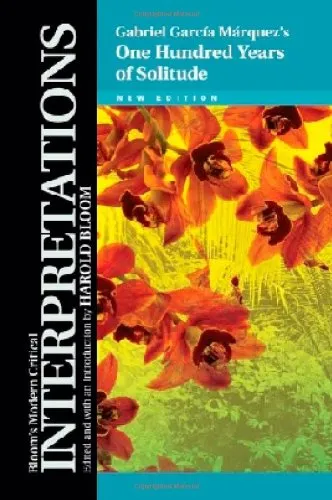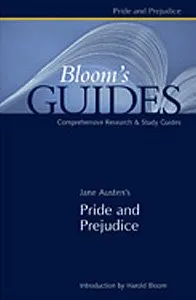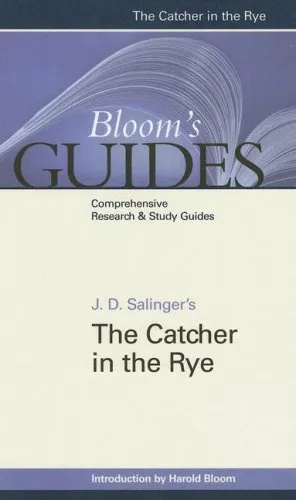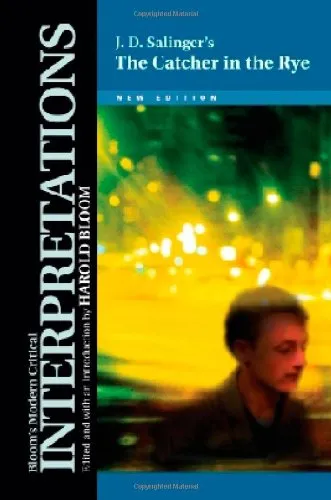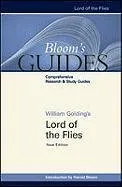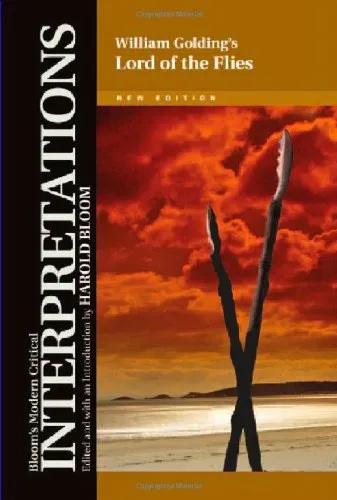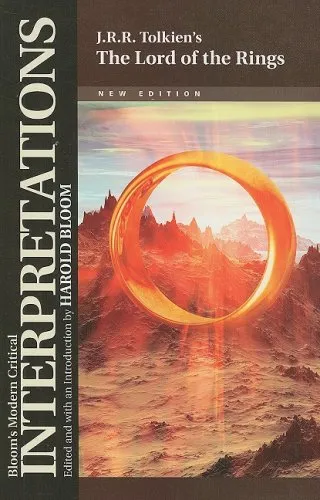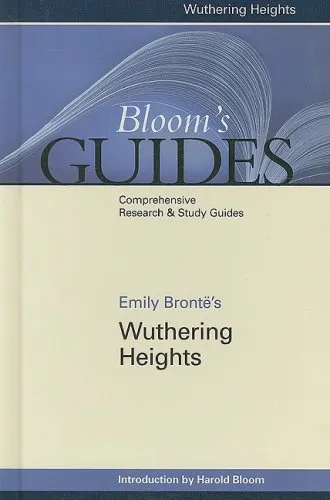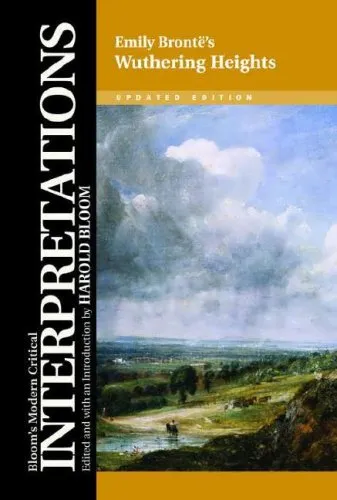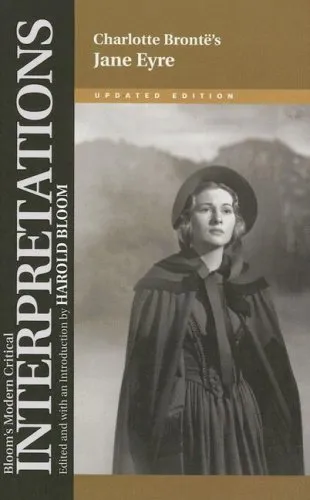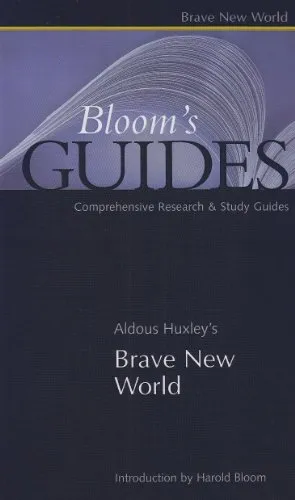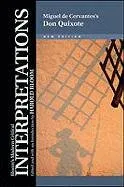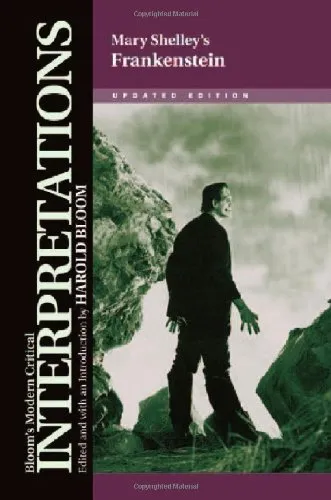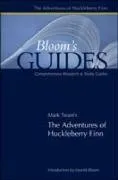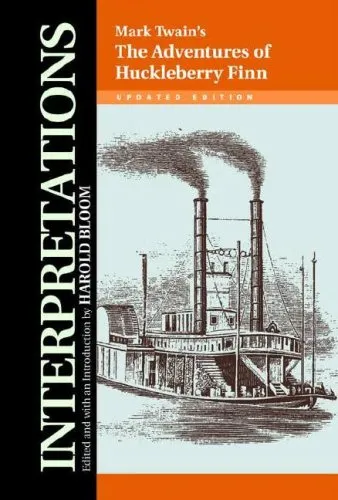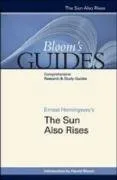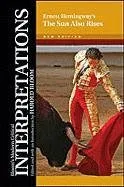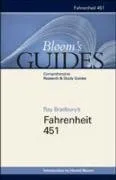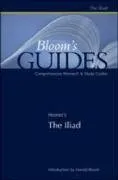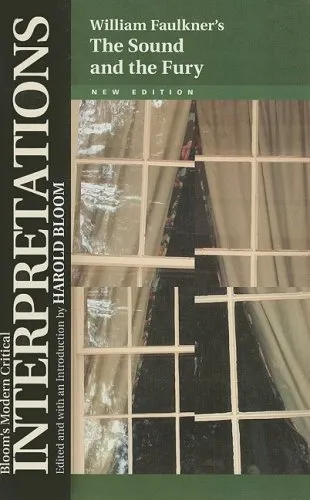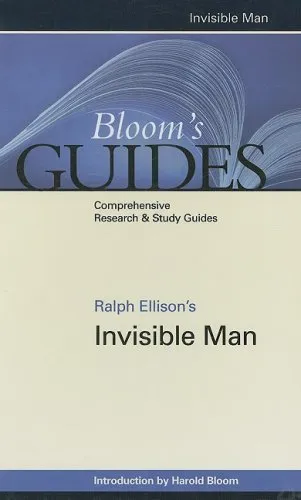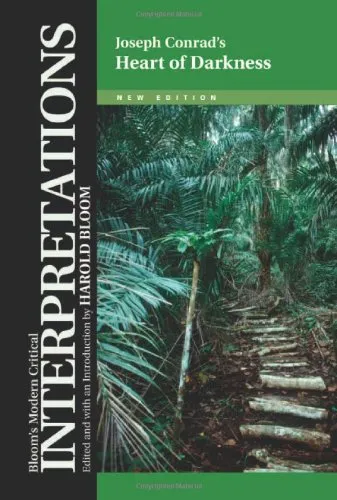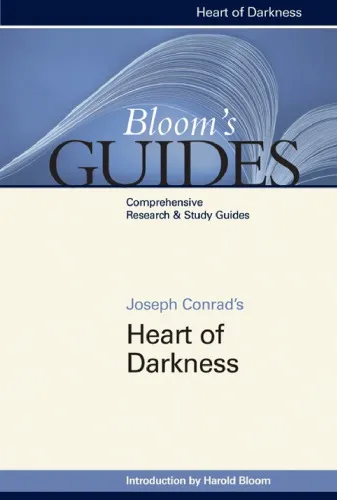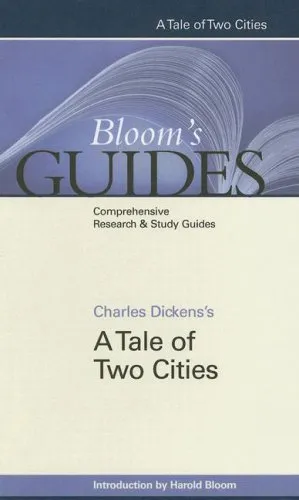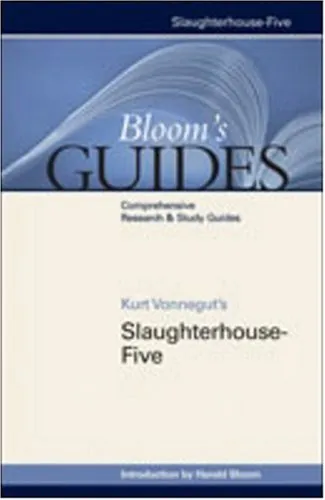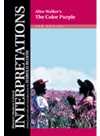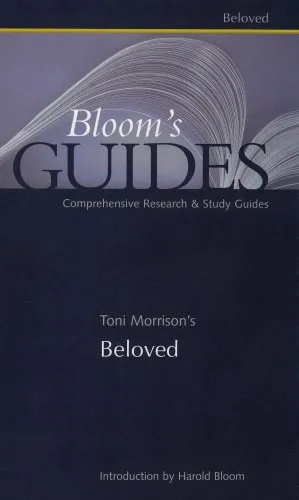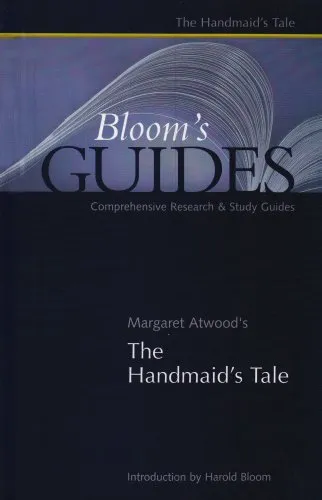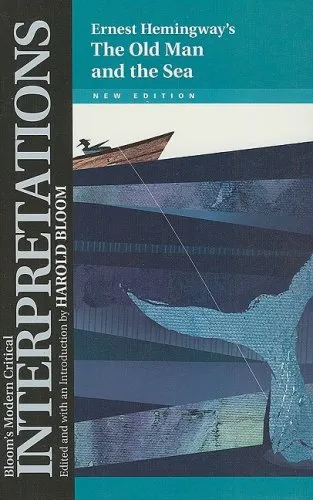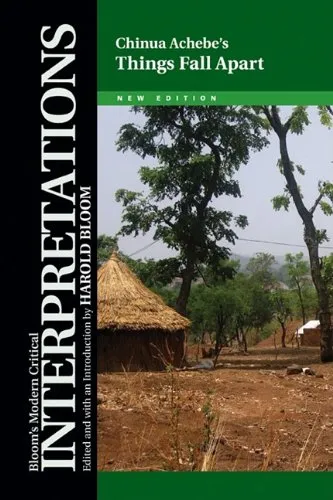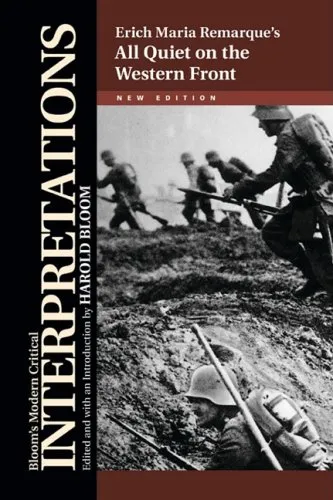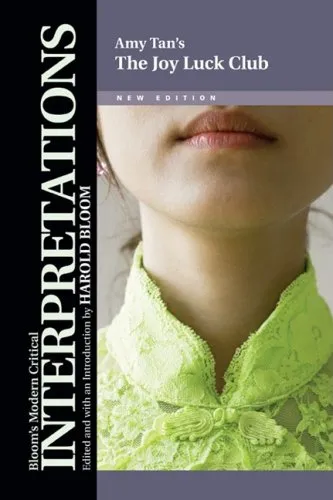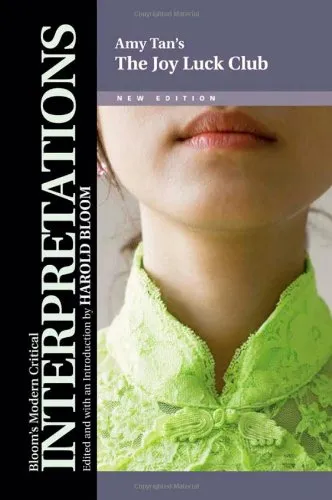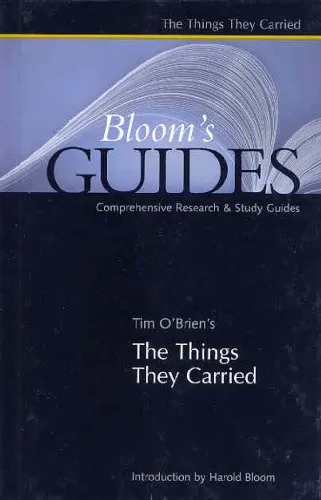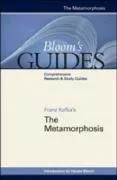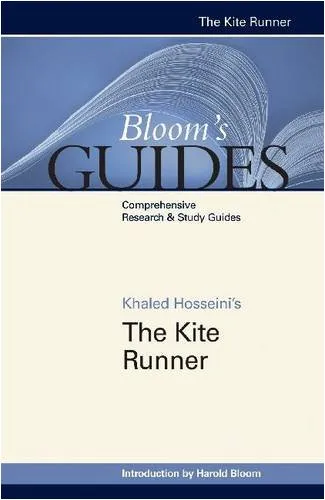Mary Shelley's Frankenstein (Bloom's Guides)
3.5
بر اساس نظر کاربران

شما میتونید سوالاتتون در باره کتاب رو از هوش مصنوعیش بعد از ورود بپرسید
هر دانلود یا پرسش از هوش مصنوعی 2 امتیاز لازم دارد، برای بدست آوردن امتیاز رایگان، به صفحه ی راهنمای امتیازات سر بزنید و یک سری کار ارزشمند انجام بدینکتاب های مرتبط:
Persian Summary
معرفی کتاب
کتاب "Mary Shelley's Frankenstein (Bloom's Guides)" نوشته هارولد بلوم، یک اثر تحلیلی و راهنمای جامع است که به بررسی عمیق رمان "فرانکنشتاین" اثر مری شلی میپردازد. این کتاب برای دانشجویان، پژوهشگران و هر کسی که به ادبیات کلاسیک علاقهمند است، منبعی ارزشمند فراهم میآورد. بلوم به کمک تحلیلهای فکری و ادبی، نقاط قوت و ضعف این شاهکار ادبی را معرفی و بررسی میکند.
خلاصه کتاب
این کتاب به عنوان یکی از راهنماهای Blooms برای تحلیل ادبی، به ارائه خلاصهای جامع از داستان و موضوعات اصلی "فرانکنشتاین" میپردازد. در این خلاصه، بلوم به معرفی شخصیت ویکتور فرانکنشتاین، دانشمندی جاهطلب که موفق به خلق یک موجود زنده میشود، و چالشها و پیامدهای اخلاقی و اجتماعی آن میپردازد. داستان با تامل در مسائل پیچیدهای همچون خلاقیت، مسئولیت و انسانیت، مخاطب را به تأمل وادار میکند.
نکات کلیدی
- بررسی عمیق مفهوم "خلق" در مقایسه با نقش خداوند در ادبیات.
- تحلیل روابط انسانی و چگونگی تحت تأثیر قرار گرفتن آنها توسط پیشرفتهای علمی و تکنولوژیکی.
- ارزیابی تنشهای میان اخلاق و علم و چگونگی پرداختن به مسئولیتهای انسانی.
جملات معروف کتاب
«نابغگی و علمی که فاقد احساس مسئولیت باشد، فقط به ویرانی و خطر منتهی میشود.»
«انسانها خود را بر اساس قدر دانی از عشق و وابستگی میسازند، نه فقط با علم و دانش.»
چرا این کتاب مهم است؟
"Mary Shelley's Frankenstein (Bloom's Guides)" به دلیل نقد عمیق و تحلیلی از یکی از مهمترین آثار ادبیات گوتیک و رمانتیک، از اهمیت ویژهای برخوردار است. این کتاب به روشنگری دیدگاههای اجتماعی و فلسفی معاصر مری شلی و تأثیرات آن بر موضوعات مدرن مانند تکنولوژی و اخلاق میپردازد. همچنین، علاقهمندان به ادبیات کلاسیک میتوانند از دیدگاههای متفاوتی که بلوم در این راهنما ارائه میدهد، بهرهمند شوند و دریافتی جدید و عمیقتر از "فرانکنشتاین" پیدا کنند.
Welcome to 'Mary Shelley's Frankenstein (Bloom's Guides)', a comprehensive exploration of one of the most pivotal works of English literature. This guide presents an in-depth analysis and insights into Mary Shelley's classic, "Frankenstein," a novel that has transcended its original purpose to become a cornerstone of modern storytelling, exploring themes of ambition, isolation, and the pursuit of knowledge. In this guide, we delve into the multifaceted layers of the text, offering a detailed summary, key takeaways, and a reflection on the cultural and literary significance of this seminal work.
Detailed Summary of the Book
Penned during a cold summer in 1816, Mary Shelley's "Frankenstein" has come to represent much more than a gothic novel; it is a narrative that touches on the very essence of human endeavor and the potentially hubristic chorus of scientific exploration. Victor Frankenstein, the ambitious and flawed protagonist, embarks on a perilous journey of creating life, assembling a sentient being from cadaveric remains, only to be horrified by the creature's hideous appearance.
As the narrative progresses, readers witness the deterioration of Victor’s mental state and the tragic consequences of his abandonment of the creature. Through an isolated and remorseful life, the creature yearns for social acceptance and sympathy but is met with fear and aggression. This rejection turns him towards vengeance, laying the groundwork for a devastating confrontation with his creator.
The novel unfolds in a series of narratives within narratives, allowing insight into the perspectives of Victor, the creature, and Captain Walton, who records Frankenstein's tragic tale as he voyages through the Arctic. "Frankenstein" is not merely a story about scientific overreach; it is an exploration of human emotions, morality, and the quest for identity.
Key Takeaways
- The novel presents a cautionary tale about the pursuit of knowledge and the ethical boundaries that must be considered.
- It explores themes of isolation, both physical and emotional, through the lives of Victor and his creation.
- The story emphasizes the repercussions of one’s actions, highlighting that ambition unchecked by morality can lead to one's downfall.
- Family and companionship are central to the narrative, offering solace against the backdrop of rejection and desolation.
- Through its epistolary format and multiple viewpoints, the novel challenges readers to consider the relative nature of monstrosity and humanity.
Famous Quotes from the Book
“Beware; for I am fearless, and therefore powerful.”
“Nothing is so painful to the human mind as a great and sudden change.”
“I ought to be thy Adam, but I am rather the fallen angel”
Why This Book Matters
"Frankenstein" holds a significant place in literature due to its pioneering depiction of the duality of scientific exploration and its moral implications. Written in a time when the Industrial Revolution was unveiling unprecedented technological advancements, the novel served as a prescient warning of hubris. Shelley’s narrative continues to resonate with contemporary audiences, raising relevant questions about the relationship between creator and creation, the moral responsibility of scientists, and the nature of humanity.
Furthermore, Shelley's intricate characterizations offer profound psychological insights. Victor's ambition and guilt highlight the human struggle between ethical responsibility and personal glory, while the creature's evolution from innocence to malevolence underscores the role of society in shaping identity.
"Frankenstein" has becomepically in literature, inspiring countless adaptations and explorations in both popular culture and academic discourse. It remains an enduring piece that not only entertains but instructs and challenges its readers, prompting invaluable introspection on the complex interplay between man, nature, and the unknown.
دانلود رایگان مستقیم
شما میتونید سوالاتتون در باره کتاب رو از هوش مصنوعیش بعد از ورود بپرسید
دسترسی به کتابها از طریق پلتفرمهای قانونی و کتابخانههای عمومی نه تنها از حقوق نویسندگان و ناشران حمایت میکند، بلکه به پایداری فرهنگ کتابخوانی نیز کمک میرساند. پیش از دانلود، لحظهای به بررسی این گزینهها فکر کنید.
این کتاب رو در پلتفرم های دیگه ببینید
WorldCat به شما کمک میکنه تا کتاب ها رو در کتابخانه های سراسر دنیا پیدا کنید
امتیازها، نظرات تخصصی و صحبت ها درباره کتاب را در Goodreads ببینید
کتابهای کمیاب یا دست دوم را در AbeBooks پیدا کنید و بخرید
1573
بازدید3.5
امتیاز0
نظر98%
رضایتنظرات:
3.5
بر اساس 0 نظر کاربران
Questions & Answers
Ask questions about this book or help others by answering
No questions yet. Be the first to ask!
